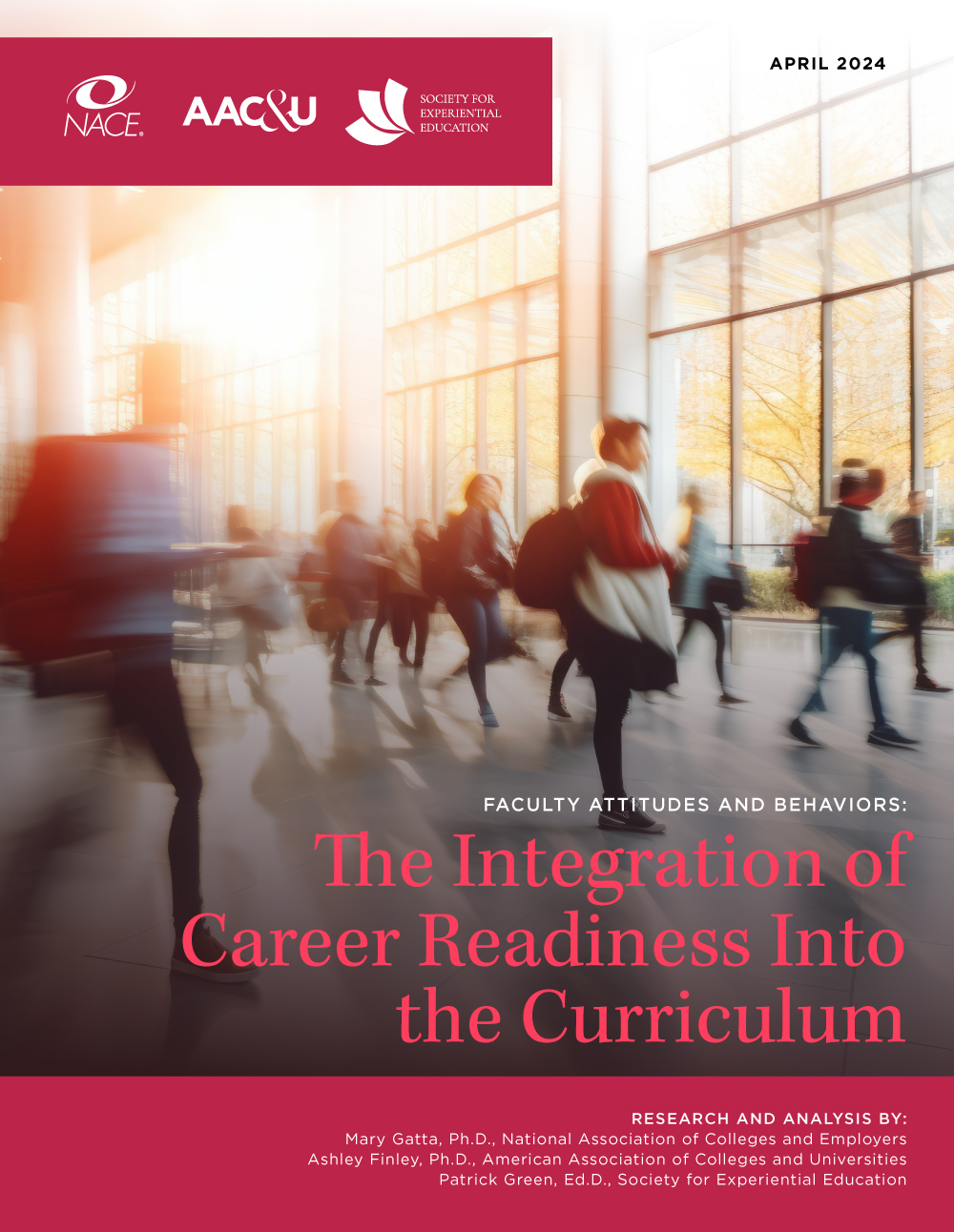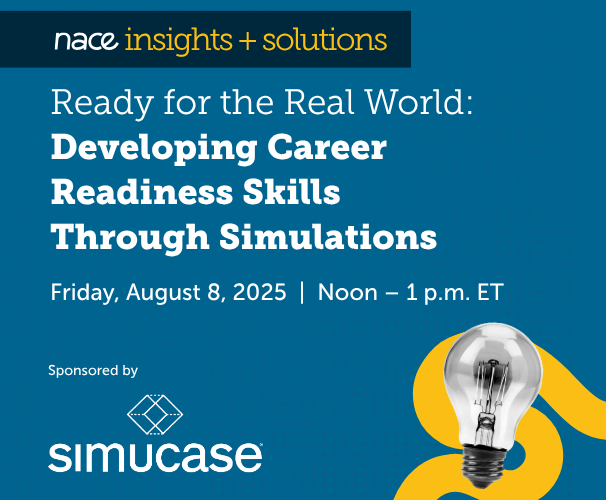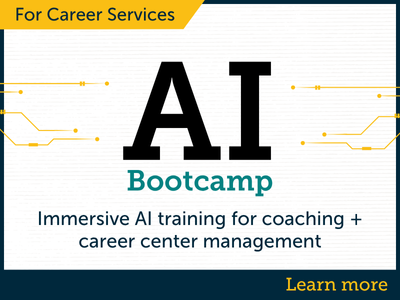Faculty are a key source of career advice for students—with more than nine of out 10 saying students asked them for guidance in the past year, according to a new study conducted by NACE in collaboration with the American Association of Colleges & Universities and the Society for Experiential Education.
This tracks with results seen in NACE’s annual student survey: Among Class of 2023 respondents, 86% said they were comfortable discussing career plans with a faculty member and 57% said they used faculty as a job-search resource.
Students Tap Faculty for Job, Grad School, Internship Advice
Overall, 64% of faculty members taking part in the study said undergraduate students ask them about what jobs can be done with their major. More than half also said students ask them about graduate school and internships.
These are topics career center professionals are well-positioned to help faculty address, but faculty are more likely to rely on their personal networks than on their institution’s career center for assistance.
At the same time, many faculty members acknowledge gaps in their understanding of the labor market and in their understanding of the internship process at their institution, which their institution’s career center could likely address.
Career Readiness and Faculty Engagement
Career readiness plays a role in determining whether faculty engage with the career center: More than half reported their institution has aligned student outcomes with competencies, and nearly four out of five of this group have collaborated with the career center.
These faculty members are most likely to refer students to the career center, but large portions work more closely with career services staff. Nearly half draw upon the career center for resources and expertise, and more than 40% of this group said they bring staff into the classroom to talk about career resources.
Addressing Faculty Needs
Results of the study point to opportunities for career centers to collaborate with faculty to work together toward successful student outcomes and overall institutional effectiveness.
- Career services professionals can fill an information gap for faculty by providing them with career information, particularly around the labor market, internships, and student outcomes.
- Career centers can develop faculty toolkits across disciplines to help faculty support students in their career preparation.
- More than one-third of faculty say they haven’t integrated career readiness into their courses because they lack the background or expertise: Career services professionals can help faculty align their learning outcomes with the career readiness competencies by providing language, examples, and resources.
Faculty Attitudes and Behaviors: The Integration of Career Readiness Into the Curriculum is available on the NACE website.
The study on which the report is based was conducted October 18 through December 31, 2023. Overall, there were 6,880 usable responses, representing four- and two-year faculty members at both public and private institutions and across a range of disciplines.
DOWNLOAD NOW








